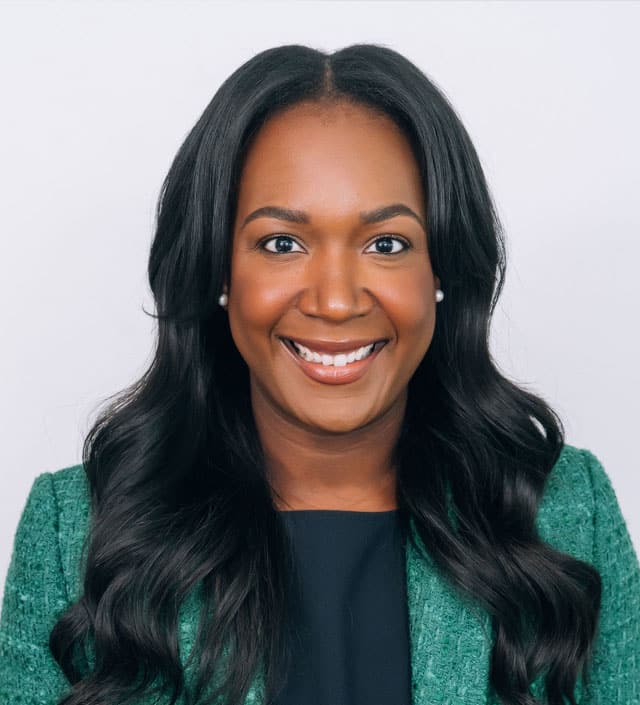About two years ago, I was asked to give a presentation at an annual state association conference. The audience was executives representing a number of associations around the state of Washington, and the focus was on how to offer more services to their members. The topic was “Retirement! Who is on your team?” It was a lot of fun to uncover the various types of people poised to help us move to the next stage. But it became more and more obvious that the kind of clients I work with as a retirement and transition coach — financial planners and wealth managers — are hardly in the forefront.
Many of the advisory groups I work with told me they felt they offered clients many other services beyond financial, but the reality is they did a poor job of communicating this. Clients often seek advisory help after they start Medicare and Social Security, or maybe even after they make another big decision, like downsizing or moving. Advisors need to let clients and prospects know that they can help them plan for life in retirement prior to these key events. Not only does such planning lead to better client outcomes, it also helps advisors establish stronger client relationships.
The cookie-cutter approach to retirement planning is no longer working. The big question is, what non-financial services can advisors offer and do it well? I’m seeing more advisors make a decision to follow one of two paths: Be a spoke in the retirement wheel and handle just the financial piece or prepare to take on a more in-depth role as the hub of transition planning.
Retirement Challenges
Before I take you down either path, let’s do a quick review of some of the changes occurring around this thing called “retirement” that’s making it harder for advisors to keep up.
More Americans are:
- Living longer.
- Relying on 401(k)s and IRAs rather than pensions.
- Confused about Medicare and Social Security.
- Marrying later.
- Having children at an older age.
- Wishing to retire earlier.
- Staggering retirement with a spouse or partner.
- Planning to work in their retirement years. (82% of people retiring expect to work past the age of 65.)
- Seeking purpose and meaning.
- Considering downsizing or become a snow bird.
- Divorcing after 20 plus years of marriage (gray divorce).
- Planning to starting a new business. (37% of all new businesses are started by people 55 and older.)
- Worrying about caregiving for a parent, spouse and grandkids.
- Concerned about affording senior, independent or assisted living.
The Big Picture
Taking on estate planning and non-financial issues for men and women over 55, including career and living transitions, is a large challenge. Clients may want to learn about resources for independent living and assisted living, or they may assistance with aging-in-place decisions. Clients may want help with networking, volunteer opportunities and new business ideas. Or they may seek advice on travel and lifestyle choices.
Figuring out how to help clients navigate this retirement minefield is difficult enough. But the last two years of the pandemic have made it even more challenging. Baby boomers have pivoted their priorities toward health, family, socialization and purpose, putting them on par with their financial well-being.
So back to the two paths I mentioned earlier. Firms that decide to be a spoke in the retirement wheel run the risk of losing clients to firms that offer more robust retirement services. Yet the cost to add personnel to help clients with these non-financial issues is daunting. Another option, where these paths cross is to offer at least a concierge approach.
A concierge approach can take different forms. Firms can maintain a list of outside service offerings and clients can pay for those they use. Or firms may choose to offer its fee-based clients extra services for free as a terrific enhancement to the relationship.
Adapt, Add or Outsource
So how does a firm add or outsource the skills, training and help necessary to tackle the challenges of “new age” retirement?
Numerous firms have their own team of non-financial personnel doing marketing, customer service, event planning, client prospecting, etc. The members of these teams can also maintain and share non-financial resources with clients, such as lists of assisted living facilities and volunteer opportunities.
Advisors can also partner with retirement and transition coaches who train them on non-financial retirement issues and can also conduct informational webinars for their clients.
I have co-presented webinars to teach advisors’ clients how to navigate the healthcare system, learn online banking, manage travel and navigate social media. I also co-presented webinars for advisors’ clients on how to cope during the pandemic. Sponsorship for these webinars was usually provided by a hospital, bank, travel agency or one of the advisory firms.
A father-and-son advisor team I worked with developed a new, more meaningful approach to the current lives of baby boomers. By rebranding themselves and adding new skills to help clients with work-life balance and other retirement-living issues, they also developed a younger base of business among pre-retirees. These advisors eventually got certified themselves by Certifiedretirementcoach.org. A number of firms also tap into the Retirement Coaches Association as non-coaching members to get content and ideas.
Firms that can’t afford full-approach retirement planning now or wish to slowly move forward with it can pick informally network with area real estate agents, healthcare providers, technology experts etc. to educate themselves and their clients. Many professionals in communities want to help each other.
Advisors should address issues early on, before clients retire. This will help maybe even retain next-generation clients because they will see how their parents’ needs are addressed beyond “just the numbers.”
A firm must be genuine and open. Simply spouting numbers to clients based on how their portfolio looks, how much they can spend and how much each bucket needs is not the wave of the future. People want to incorporate their mental, physical, financial and spiritual health into one plan! Will you be the hub? Or just a spoke in the wheel?
Pete Finlon is the president and owner of Triple/Double LLC, a certified retirement and transition planning firm that provides pre-retirees and retirees with new approaches to managing the non-financial tools need for the next stages of living. Pete is focused on helping financial and wealth management firms provide a more comprehensive approach to their clients’ planning. You can contact him at coachpete1955@gmail.com.







